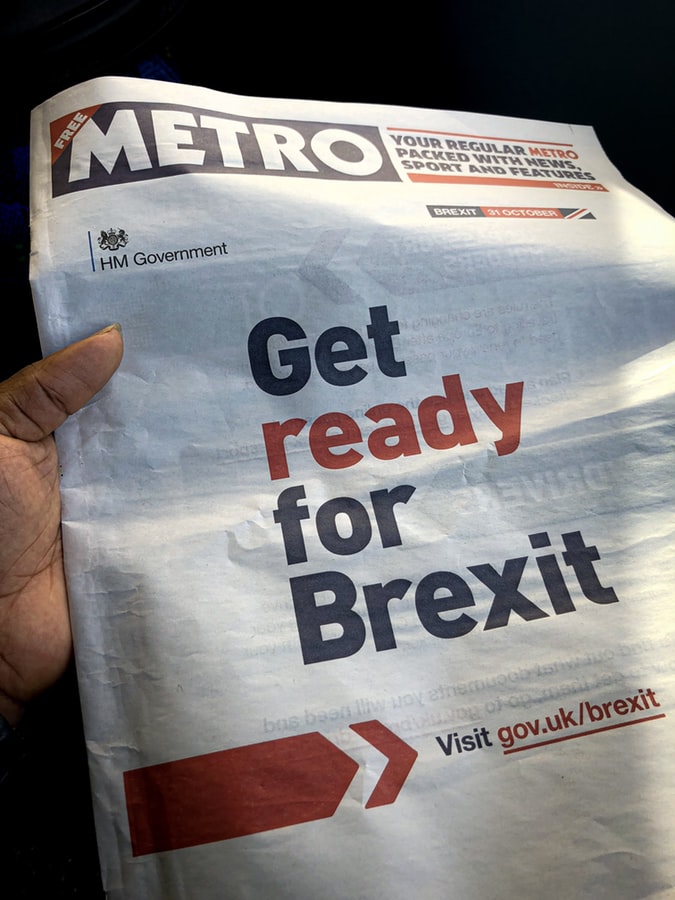
Blog
Negative effects for Payment Service and E-money Institutions in case of no-deal Brexit
Feb 25, 2020After more than three years since the vote took place in 2016, on January 31, 2020, United Kingdom officially has left the European Union.
Since the official withdrawal from the bloc, the region is now in a 11 – month transition period (beginning on February 1st and ending at the end of this year on December 31st) during which the European Union and the United Kingdom will negotiate an understanding on future bilateral relations. This means that investors are going to have wait almost another year until they get clear answers.
The main aim here is a smooth transition which depends on the complexion of the final Brexit deal. Perfect transition cannot be guaranteed, so the European Payments Council, which is responsible for upholding Single Euro Payments Area (SEPA), posits three possible outcomes:
-
The UK remains in the European Economic Area (EEA). This would keep the UK adapted with the EU legal framework, enabling it to uphold its participation in SEPA.
-
The UK leaves the EU and EEA but activates a free trade agreement. This would have the “functional equivalence” of the EU legal framework.
- A no-deal Brexit or Hard Brexit. This would not necessarily rule out participation in payment schemes but the European Payments Council would have to assess whether the UK is eligible.
In the case of no-deal Brexit or Hard Brexit, Payment and E-money Institutions authorized in the UK will lose EU Passport rights. Hence, generally, they will not be able to provide services and establish branches in the EU Member States. It is a huge problem for all service providers operating at the EU market that consists of approximately 500 million consumers and 22 million business.
Also, in no-deal Brexit, unless there are some agreements, UK Payment Service Providers (PSPs) will immediately lose direct access to EU central payments infrastructure, such as TARGET2 and the SEPA, including STEP2, meaning customers will face increased costs and slower processing for Euro transactions. This will have impact on all PSPs, which use UK banks for euro correspondent services, including non-bank PSPs, such as PIs and EMIs, which will have to open accounts with EU-based PSPs. Many Authorised Payment Service Institutions and Authorised E-money Institutions based in the UK also acquired licenses in the EU Member States and established subsidiaries or at least made applications.
Regarding accessibly to SEPA, there are countries outside EU that are part of the SEPA that fulfil the eligibility criteria of the European Payments Council, such as Iceland, Liechtenstein, Norway, Monaco, San Marino, Switzerland, and Andorra. While UK is maximising its prospect of the maintaining access to the SEPA, it is not clear whether the access will be granted, and when. In any case, UK banks will have to make new Euro-clearing arrangements with the EU to get access to the infrastructure as soon as possible, which would involve rerouting transactions, indirect memberships via EU branches, Nostro setups, reviewing charging models, etc.
Relating payment making process the FCA has published information that, currently, banks and PSPs do not need to provide the name and address of the payer when making intra-EEA payments. However, as things stand, this will be required for payments between the UK and the EEA after the transition period. Banks and PSPs should take steps now to ensure you are ready to provide the relevant customer information when making payments after the transition period. This includes direct debit transactions where you are instigating a transaction on behalf of the recipient and yet will still need to have the relevant details of the payer.
Also Payment Service and E-money Institutions in case of no-deal Brexit that may be affected in the way that UK and UK-based firms will be disconnected from EU databases, IT systems and other platforms for communication and information exchange.
It is likely that most payments insiders are hoping for an agreement that ensures “business as usual” and a transition period has been put in place, but there is still a risk that the UK might not reach an agreement with the EU by January 1, 2021. Financial Conduct Authority (FCA) has explained that companies willing to operate after the UK withdraws from the EU will need to take steps to ensure continuation of operations. If you have not applied for authorization outside the UK or you want to get authorisation in the UK, you should be aware about the possible consequences of no-deal Brexit for your business.
To avoid possible hardship in scenario of no-deal Brexit, our specialists advise to establish or relocate payment service provision business activities to Lithuania, where successful governmental efforts has created favorable regulatory environment and ensured that regulatory landscape is in line with technological progress and correspond to the needs of the Europe market.
Read our blog to keep abreast of all actual and interesting technology news.
